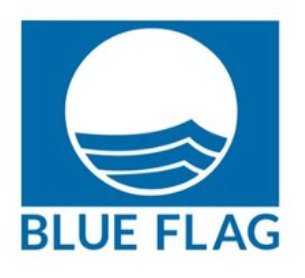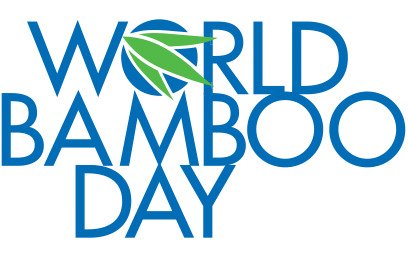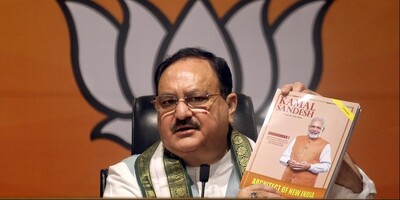Daily Current Affairs and GK | 19 September 2020

Main Headlines:
- 1. India ranks 116th in Human Capital Index 2020.
- 2. 8 beaches of India are recommended for the Blue Flag Certification.
- 3. World Bamboo Day: 18 September
- 4. Megha Majumdar’s ‘A Burning’ and Brit Bennett’s ‘The Vanishing Half’ nominated for National Book Award.
- 5. Government amended Public Procurement (Preference to Make in India) Order, 2017.
- 6. e-DIALOGUE on Ease of Living and Sustainable Development Goals-2020-21 held in Mumbai.
- 7. Special Edition of BJP mouthpiece Kamal Sandesh launched by JP Nadda.
- 8. Taxation and Other Laws (Relaxation & Amendment of Certain Provisions) Bill, 2020 has been introduced by Finance Minister in Lok Sabha.
- 9. Government allows 74% and more than 74% FDI in defence.
- 10. 60th anniversary of Indus Water Treaty: 19 September.
Happy February get 35% Off
Use Coupon code FEB26
1. India ranks 116th in Human Capital Index 2020.
- Recently, Human Capital Index 2020 has been released by World Bank. Singapore has topped the index.
- India has ranked 116th among 174 countries in HCI 2020 with a score of 0.49 against 115th rank among 157 countries in HCI 2018.
- Human Capital Index 2020 includes health and education data for 174 countries up to March 2020.
- Due to the COVID-19, more than 1 billion children have been out of school.
- The World Bank has estimated a 12% drop in employment due to COVID-19.
- Human Capital Index (HCI) was launched in 2018 as part of the Human Capital Project (HCP). It has three components- Survival, expected years of quality-adjusted school and health (adult survival rate and healthy growth among children under age of 5).
- World Bank:
- It is an international financial institution comprising the International Bank for Reconstruction and Development (IBRD) and the International Development Association (IDA).
- Established: 1944
- Members: 189 countries
- President: David Malpass
- MD and CFO: Anshula Kant
- Chief Economist: Carmen Reinhart
- Other reports published by the World Bank are Global Economic Prospects, Ease of Doing Business, World Development Report.
2. 8 beaches of India are recommended for the Blue Flag Certification.
- The Ministry of Environment, Forest and Climate Change announced that for the first time 8 beaches of India had been recommended for the Blue Flag Certification.
- These 8 beaches are:
- Shivrajpur in Gujarat
- Ghoghla in Daman & Diu
- Kasarkod and Padubidri beach in Karnataka
- Kappad in Kerala
- Rushikonda in Andhra Pradesh
- Golden beach of Odisha
- Radhanagar beach in Andaman and Nicobar
- This was announced at a virtual event to celebrate International Coastal Clean-Up Day.
- International Coastal Cleanup Day is being observed annually on the third Saturday of September across 100 countries since 1986.
- During the event, India launched its own eco-label “BEAMS” (Beach Environment & Aesthetics Management Services) under its Integrated Coastal Zone Management (ICZM) project.
- During the Earth Summit in 1992, the concept of ICZM was introduced to promote sustainable development & management of coastal zones.
- Blue Flag is an international eco-label given to beaches, marinas and sustainable boating tourism operators. The certification is given by the Foundation for Environmental Education (FEE).
- The Blue Flag beaches are considered the cleanest beaches of the world.

(Source: BlueFlag.global)
3. World Bamboo Day: 18 September
- World Bamboo Day is celebrated every year on 18 September by the World Bamboo Organisation.
- The day is celebrated to create awareness about the need to conserve and promote the bamboo industry.
- Theme 2020: BAMBOO NOW
- Bamboo is known as green gold and is used to make clothes, food, building roads, houses, accessories, etc. It is very fast-growing and renewable.
- India and Bamboo:
- According to the State of Environment Report 2018, India is the second-largest cultivator of bamboo in the world after China.
- National Bamboo Mission was started by the government of India to promote bamboo cultivation and marketing and to double farmer’s income.
- Bamboo was removed from the category of tree in 2017.
- According to the Forest Survey of India 2011, more than 50% of bamboo species are found in eastern India.
- World Bamboo Organisation was originally founded as the International Bamboo Association (IBA). Susanne Lucas is the CEO of WBO.

(Source: world bamboo site)
4. Megha Majumdar’s ‘A Burning’ and Brit Bennett’s ‘The Vanishing Half’ nominated for National Book Award.
- The judges have announced nominees for the National Book Award 2020 and the winners will be announced on 18 November.
- 10 books that have been nominated in the fiction category include:
- A Burning by Megha Majumdar
- The Vanishing Half by Brit Bennett
- If I had Two Wings by Randall Kenan
- Leave the World Behind by Rumaan Alam
- Shuggie Bain by Douglas Stuart
- The Index of Self-Destructive Acts by Christopher Beha
- A Children’s Bible by Lydia Millet
- The Secret Lives of Church Ladies by Deesha Philyaw
- The Great Offshore grounds by Vanessa Veselka
- Interior Chinatown by Charles Yu
- National Book Award:
- These awards are presented by the National Book Foundation.
- These are given annually in each of five categories – Fiction, Non-fiction, Poetry, Translation and Young people’s literature.
- First National Book Awards were presented in 1950.
5. Government amended Public Procurement (Preference to Make in India) Order, 2017.
- The government has amended the Public Procurement (Preference to Make in India) Order, 2017.
- Now, the ministries/ departments can notify higher minimum local content requirements for Class I and Class II local suppliers.
- Earlier the minimum local content requirement was fixed at 50% for Class I suppliers and 20% for Class II suppliers. The goods from Class I Suppliers are available for any bid. But goods from Class II Suppliers will be eligible for bids below Rs. 200 crore.
- Such companies of countries that do not allow Indian companies to be part of their government procurement will not be allowed to participate in government procurement in India for items related to that nodal ministry/ department.
- All ministries/ departments whose procurement is more than Rs. 1000 crore per year shall notify their procurement projection for the next 5 years.
6. e-DIALOGUE on Ease of Living and Sustainable Development Goals-2020-21 held in Mumbai.
- The e-DIALOGUE on Ease of Living and Sustainable Development Goals-2020-21 was held in Mumbai.
- International Finance Corporation (IFC) said that it would provide two trillion dollars to India for developing green buildings, improving public transport and promoting renewable sources of energy.
- India has the second-largest urban population in the world and this will double by 2050.
- International Finance Corporation (IFC):
- It was established in 1956.
- It is a member of the World Bank Group that offers investment to promote the development of the private sector in less developed countries.
- Its headquarters is located in Washington, DC, US.
- World Bank Group President, David Malpass, is also President of IFC.
- CEO: Philippe Le Houerou
- Members: 185 countries

(Source: IFC)
7. Special Edition of BJP mouthpiece Kamal Sandesh launched by JP Nadda.
- The President of BJP, JP Nadda, released the ‘Kamal Sandesh’ special edition on the occasion of the 70th birthday of PM Narendra Modi.
- It highlights the journey of life of Prime Minister Narendra Modi.
- On this occasion, Mr. Nadda applauded the passage of three farm bills in the Lok Sabha.

(Source: ANI)
8. Taxation and Other Laws (Relaxation & Amendment of Certain Provisions) Bill, 2020 has been introduced by Finance Minister in Lok Sabha.
- The bill will replace the Taxation and Other Laws (Relaxation of Certain Provisions) Ordinance issued on 31 March 2020.
- The ordinance was issued to give relaxation in compliance with the Income Tax Act, 1961 (IT Act), some Finance Acts, the Central Excise Act, 1944, the Customs Act, 1962, and the Prohibition of Benami Property Transactions Act, 1988.
- The ordinance has also increased deadlines under Vivad Se Vishwas scheme. The bill will extend the date for payment of dues under the scheme to December 31.
- As per the provisions of the bill, Income Tax Act would be amended and donations made by a person to PM CARES Fund will be eligible for 100% deduction in taxable income under section 80G of the I-T Act.
- As per the provisions of the bill, the faceless assessment scheme would be extended to at least eight processes in income tax law and revision and effect of orders, inquiry or valuation, approval or registration will be made faceless.
- The provisions of the bill will amend the Finance Act, 2020, to limit surcharge at 15% on the dividend income of foreign portfolio investors.
- The bill will introduce new Section 168A in CGST Act and allow the government to extend the deadline for incomplete GST-related compliances and actions due to force majeure (war, epidemic, natural calamity).
9. Government allows 74% and more than 74% FDI in defence.
- The government has allowed up to 74% FDI through automatic route and more than 74% FDI through the government (approval) route in defence.
- More than 74% of FDI will be allowed through government approval if it will provide access to modern technology or for other reasons to be recorded.
- Department for Promotion of Industry and Internal Trade’s notification says that FDI is dependent on security clearances by the Ministry of Home Affairs and will be as per Defence Ministry’s guidelines.
- In July 2018, the government allowed up to 49% FDI in defence under the automatic route.
- The government has increased the FDI limit with certain conditions. It is aimed at supporting the domestic industry.
- Currently, India imports nearly 72 % of its military equipment.
10. 60th anniversary of Indus Water Treaty: 19 September.
- The Indus Water Treaty was signed between India and Pakistan in 1960.
- 19 September 2020 marks the 60th anniversary of this World Bank brokered-deal.
- As per the treaty, the control over the waters of three eastern rivers- Beas, Ravi and Sutlej was given to India.
- Pakistan was given control over the waters of three western rivers- Indus, Chenab and Jhelum.
- India was given 20%of total water carried by the Indus System while the rest was allocated to Pakistan.
- India has constructed various dams to utilize the waters of the eastern rivers like Bhakra Dam (Satluj), Pong and Pandoh Dam (Beas), Ranjit Sagar Dam (Ravi), etc.





 18 September 2020 Current Affairs
18 September 2020 Current Affairs 








Comments